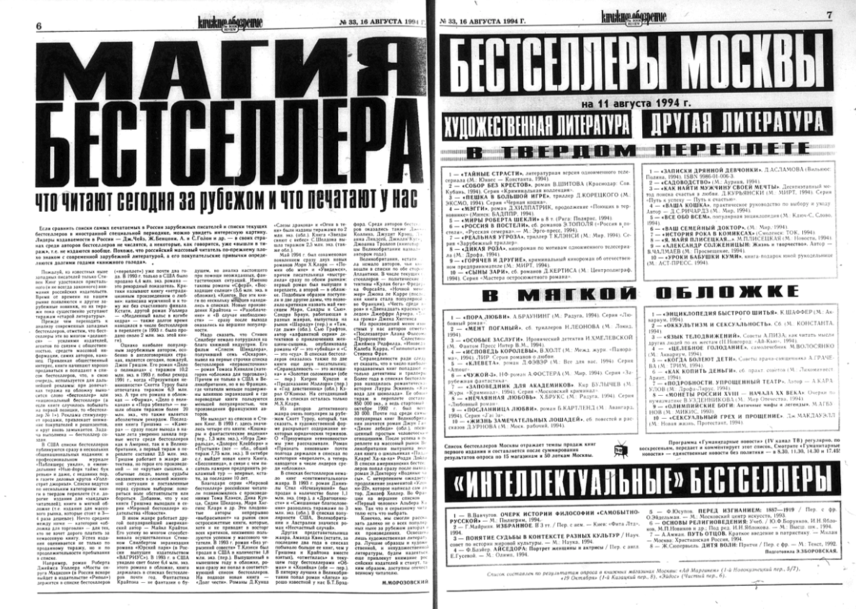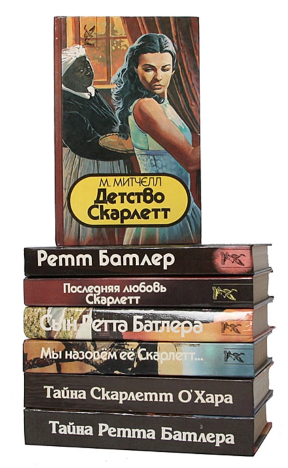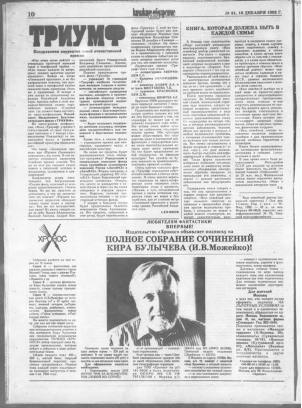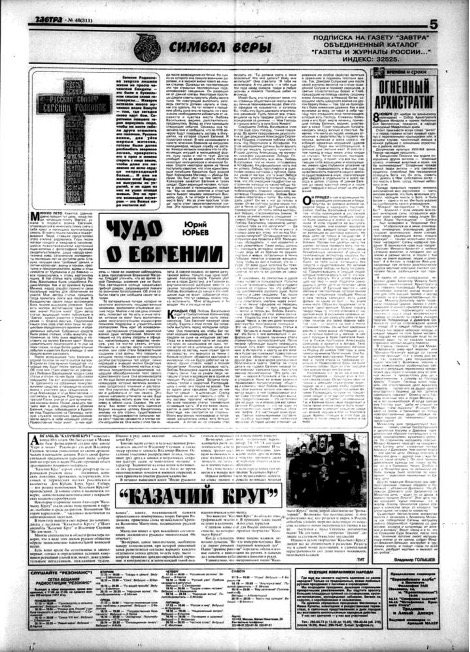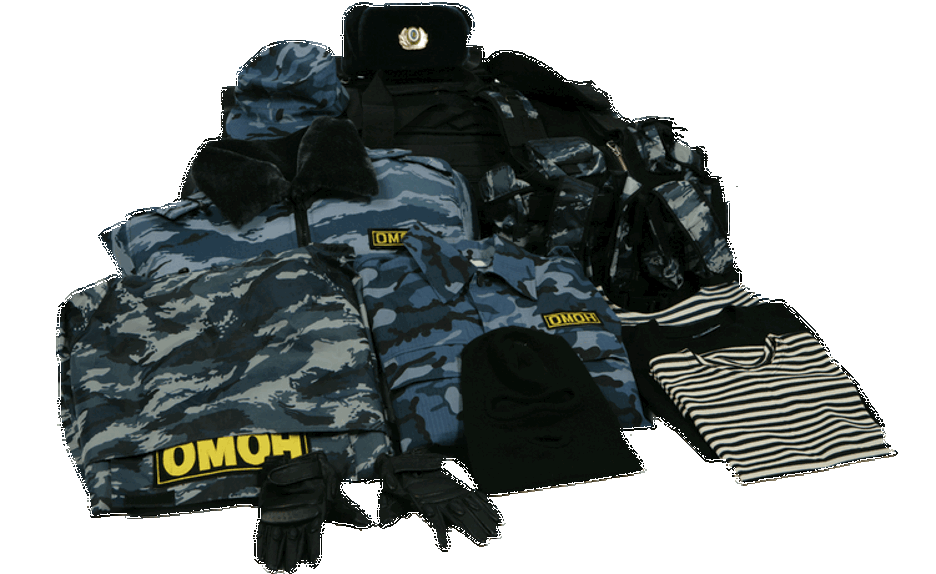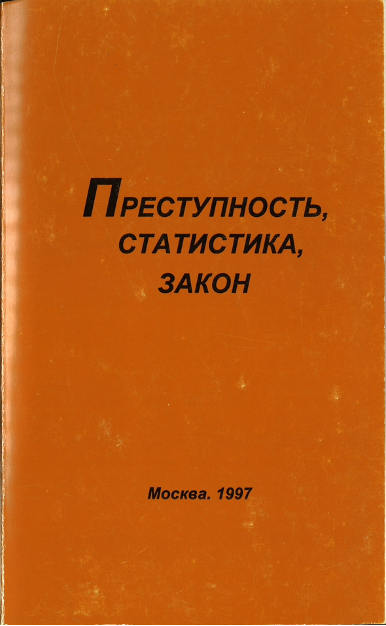Bestsellers of Moscow
Post-Soviet Russia's first bestseller lists, compiled by the weekly industry newspaper "Knizhnoe obozrenie" and published from late 1993 through 1998.
"Gone with the Wind"—The post-Soviet Sequels
A series of five collectively authored sequels to Margaret Mitchell's bestselling “Gone with the Wind” (1936). Writing in Minsk, Belarus, the anonymous authors published under the pseudonym Dzhuliia Khilpatrik (“Julia Hillpatrick”) and released titles like “We'll Call Her Scarlett,” “Rhett Butler's Son,” and “Scarlett's Last Love”
The Triumph Prize
Launched at the same time as the Russian Booker and funded by the newly minted oligarch Boris Berezovsky (1946-2013), the Triumph Prize promised an even broader program of cultural guardianship and philanthropy.
The Miracle of Evgeny
A Russian soldier during the first Chechen War (1994-1996), Evgeny Rodionov was captured outside of the Chechen capital, Grozny, and reportedly executed for refusing to renounce his Orthodox faith. His image has since served as the inspiration for several new icons created in the post-Soviet Russian Orthodox Church.
OMON Uniform
Although the police special forces unit known as OMON (Otriad militsii osobogo naznacheniia) was established before the fall of the Soviet Union, their now-ubiquitous light blue camouflage was only introduced in 1994, when OMON was deployed as part of the first Chechen War. OMON and its uniform have since been associated with street intimidation, market clearings, and protest-quashing, especially in Moscow and St. Petersburg.
Russian Crime Statistics, 1980-1996
Nothing epitomized the everyday experience of the urban Russian 1990s like crime. As this first comprehensive statistical study of the 1990s demonstrates, crime was just as bad as everyone had anecdotally experienced. The numbers also reveal some unexpected trends.
